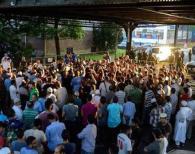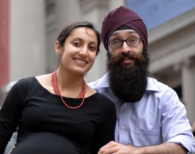In the aftermath of hate... people commit to making their neighbors feel safe.
New York
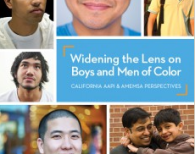
FBI to track hate crimes against Sikhs, Hindus, and other groups
CREDIT: The Sikh Coalition
After prolonged campaigning by advocates for the Sikh-American community, the FBI announced this week that they would start monitoring hate crimes against Sikhs, Hindus, and other religious groups, as well as Arab-American and Middle-Eastern communities, according to The Washington Post. Harpreet Saini, whose mother was murdered at the mass shooting in Oak Creek, WI last year, said, “This is a step in the right direction to ensure that no one else will have to suffer what my brother and I suffered after losing our mother to a hate crime last August.”
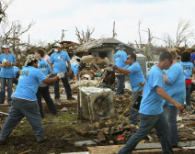
Twister brings divided Alabama community together
CREDIT: CBS Atlanta
The Public Opinion reports that a twister that devastated the Alabama neighborhood of Kikpatrick in March has helped to bring the community together.
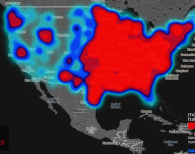
Mapping hate across U.S.Data visualization company Floating Sheep has produced a fascinating map of the mainland U.S. which charts the use of hate speech on twitter. The so-called “hate map” shows the frequency of geotagged tweets containing certain certain racist, homophobic and ableist terms, the end result being an interactive map highlighting hate hot spots across the country.
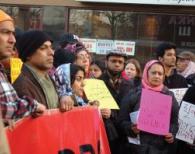
Queens community rallies after subway attack
Residents of Queens, NY, are asking the police department and the city’s transportation leaders to both step up enforcement of hate crimes and soften their tone against Muslims.
The call for tolerance from New York City leaders comes after Sunando Sen, a Hindu-Indian immigrant who was mistaken for a Muslim, was pushed to his death from a subway platform in front of an oncoming train last week.
About 50 people demonstrated in the Jackson Heights neighborhood of Queens this week. Police representatives and local councilmen joined the group in solidarity.
Protesters held signs displaying messages like “Stop normalizing racism and violence,” and “NYPD and MTA, racial profiling and hateful ads have consequences.”
“I saw and talked with Sunando just moments before the incident,” Ranjit De Roy, a friend of Sunando, said to the group. “He was a quiet and gentle man who never harmed anyone. How many more lives must we lose to this racism?”
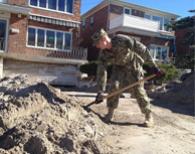
Superstorm Sandy has battered the Northeast, the losses ranging from homes to loved ones. Still, these stories show us how neighbors are courageously stepping forward to help and rebuild after the storm.
Belle Harbor residents lend surfboards, kayaks to relief efforts
Though faced with a four-foot high wall of water in their streets, residents of this Queens beach town worked together and used whatever they could to help neighbors in the midst of Hurricane Sandy.
One man used his surfboards and kayaks to ferry his 82-year-old mother and other residents on his street to safety, while others helped evacuate neighbors from their burning homes. This story was originally reported on CBS News.
Comsewogue community holds food drives to help hurricane-ravaged areas
Dozens of Comsewogue residents helped out needy families during the disaster with truckloads of donated goods.
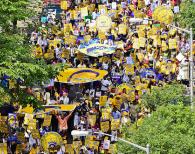
Video: New Yorkers Gather for Silent March to End Racial Profiling
Imagine, if almost the entire population of San Francisco were stopped by the police and patted down, and 88 percent of the time these innocent people were released with no charges. An entire group of New York city residents, whose numbers are greater than the populations of many large cities, has had this experience.
In 2011, the NYPD stopped and questioned more than 685,000 New Yorkers. Eighty-seven percent were Black or Latino and 88 percent of those frisked were innocent and walked away with no charges, according to the NYCLU.
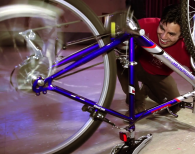
"Workers Without Wheels is saying, 'You come in here and maybe we're training you about bicycles, but you might be training us about how to treat each other decently.'"
—Rev. Dwight Lee Wolter
"Workers Without Wheels," a short film from Ed Betz Photography features an innovative bicycle program that brings together immigrants and community members in Patchogue, N.Y. The program not only provides bicycles to those in need, but work-training as well.
Rev. Dwight Lee Wolter, who appeared in Light in the Darkness, leads the Congregational Church of Patchogue.
Workers Without Wheels holds a giveaway and fundraiser tomorrow, May 19. Click here for more details.

In recognition of Immigrant Heritage Week, which was established by New York City Mayor Bloomberg in 2004 and runs from April 17-24, we have compiled Not In Our School/Not In Our Town videos centered around immigration. Whether they are students hosting a lunch-time demonstration, a policy-maker reflecting on his own history, or a group of librarians providing services for immigrants in their community--the people in the following videos share their own unique stories of how their actions have led to vital conversations about immigration in their own communities. View the collection here.
NY Screenings: The Office of Immigrant Affairs has organized six screenings around the city of Light in the Darkness for Immigrant Heritage Week. At left, you will find the flyer for Saturday's screening at the Bronx Museum of the Arts, with a Q&A with NIOT executive producer Patrice O'Neill.
